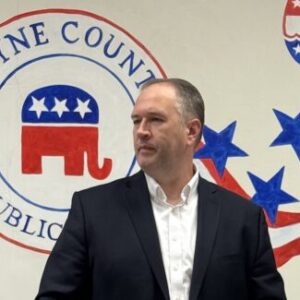The U.S. Senate approved a $9 billion federal spending rescission package in a narrow 51-48 vote early Thursday morning, handing President Donald Trump a significant win in his push to reduce government spending. The legislation includes deep cuts to foreign aid and ends funding for National Public Radio and PBS.
Two Republican senators—Lisa Murkowski of Alaska and Susan Collins of Maine—broke with their party to join Democrats in opposing the bill.
The measure now heads back to the House, which had earlier passed a slightly larger $9.4 billion version. In order to secure enough support for Senate passage, lawmakers reinstated $400 million in AIDS relief funds for Africa, according to Just the News.Senate Majority Leader John Thune praised the bill’s passage as a vital step toward restoring fiscal discipline, noting that Congress has become accustomed to running annual deficits around $2 trillion.
“I appreciate all the work the administration has done in identifying wasteful spending,” Thune said. “And now it’s time for the Senate to do its part to cut some of that waste out of the budget. It’s a small but important step toward fiscal sanity that we all should be able to agree is long overdue.”
Sen. Collins, who chairs the Senate Appropriations Committee, said she supports rescission efforts in general but opposed this specific package due to a lack of transparency from the Office of Management and Budget (OMB).She criticized the minimal documentation provided to lawmakers, arguing that it left too many unanswered questions about the specifics of the proposed cuts.
“For example, there are $2.5 billion in cuts to the Development Assistance account, which covers everything from basic education, to water and sanitation, to food security — but we don’t know how those programs will be affected,” Collins said, as reported by Fox News.
Murkowski echoed concerns about the process, saying that Congress seemed to be simply following the Trump administration’s directives rather than exercising independent legislative authority.
Both Murkowski and Collins voiced opposition to eliminating public broadcasting subsidies, citing concerns over the impact on rural communities that rely heavily on local public radio for information.CONTINUE READING




